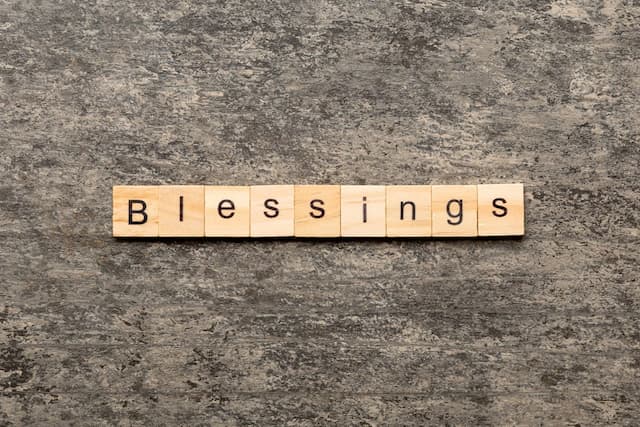I'm Boiling. May I Erupt?

I started writing this post before the killing of George Floyd.
We were still grieving Ahmaud Arbery’s senseless murder.
We cry, “Enough is enough.” We wonder when this wretched devaluing of life and
livelihood will end. And we are justifiably angry.
I don't normally mention people or current events in my posts. 'Always relevant' is my aim. But this is critical. It's serious. And it is, indeed, always relevant. I had planned to write about this topic before either of the two murders had occurred, so this is even more awakening for me as a writer.
This is what I hold fast to and what I conclude
from God’s sacred Word:
Everyone has value.
Everyone is somebody.
God cares about everyone.
We should, too.
When we hear about heartless killing, we get angry and we might even rise up and do something about it.
There’s a story about Jesus in John 2 where we
imagine Him in a fit of rage. We imagine Him trashing the profiteering exploits
of the wicked people who set up shop outside the temple in Jerusalem. It feels
like this story gives us permission to be angry and unleash our own rage,
albeit “without sinning” (Ephesians 4:26).
Dear readers, I know this will be unpopular, but the story in John 2 didn't unfold that way and we don't have God's permission to unleash our rage.
Jesus had just begun His public ministry. He assembled His disciples, performed His first public miracle, and headed to Jerusalem for the Passover celebration. And then we come to John 2:14-17:
In the temple courts he found people selling
cattle, sheep and doves, and others sitting at tables exchanging money. So he
made a whip out of cords, and drove all from the temple courts, both sheep and
cattle; he scattered the coins of the money changers and overturned their
tables. To those who sold doves he said, “Get these out of here! Stop turning my Father’s house into a market!” His disciples remembered that it is written:
“Zeal for your house will consume me.”
Key phrases like "made a whip," "drove…from the temple," "overturned…table," and "zeal…," along with the inclusion of exclamation points, affect us emotionally and we naturally associate them with our own life experiences or the way we read between the lines. But it is important to notice exactly what is written. By reading phrase by phrase, we can be clear about what happened, and we can draw some conclusions. Here are some facts:
- People sold animals to be used as sacrifices and offerings in the Passover celebration.
- People exchanged foreign money for Jewish coins to be used in the Passover celebration.
- Jesus considered these transactions to be desecrations of holy celebration and the temple, which He considered to be God's house.
Conclusion, with an eye toward what is happening around us today:
The actions of the people with power were deplorable and they took advantage of people with less power.
And the key to our learning points about anger and
the value of people and life is in what Jesus did as a response:
- He made a whip.
- He drove the cattle and sheep and those who sold them out of the temple
courts. - He scattered the coins of the money changers and he overturned their
tables. - He requested the dove sellers to take their doves away from the temple
courts. - He told the dove sellers to stop using God’s house as a place for their
own profit.
Conclusion, with an eye towards what is happening around us today:
He confronted those who desecrated God and His temple, and, without violence, He effectively drove them away.
How can I say He did this without violence if He
crafted a whip and probably raised His voice? The Bible doesn't say He used violence, and the fact that He planned His
response with careful intention supports the absence of violence.
- He didn’t explode or fly off the handle. He took time to make a whip. Maybe it didn't take Him long, but He still paused to do it.
- His responses were different and targeted for each of the offender groups:
o To those with cattle and sheep, He drove them out of the temple courts.
My guess is He used the whip to make the animals run off and their owners
quickly followed after their livelihood.
o To those who exchanged money, He scattered their coins and perhaps other items that were on the tables. By doing this, the money
changers were sure to drop to their knees and scrape up what belongings they
could gather before dashing off.
o To those who sold doves, He spoke. He didn’t do anything that would
cause the doves to fly away. This is probably because they would lose their well-being.
He gave them an opportunity to walk away with their livelihood. But He was also
very clear to them and to anyone else in earshot. He would not allow them to desecrate
God and His temple, and surely not for the sake of their own profit.
Conclusion, with an eye towards what is happening
around us today:
The offenders committed the worst of crimes, but Jesus valued them and their belongings
enough to not destroy their lives. His intent was to clean up the temple and to
assure those who came to worship could conduct a proper Passover celebration. As
a result, those who came had a safe and God-honoring environment in which to do
so.
I imagine some of us hear a different retelling of
this story on Sunday mornings. I used to understand it differently. I used to wonder
how to execute outrage without sinning. But over the years, my outrage was
always sinful. Now, when I read this story, regardless of how it may be recited
from the pulpit, I see Proverbs like these:
A gentle answer turns away wrath,
but a harsh word stirs up anger.
Proverbs 15:1
A hot-tempered person stirs up conflict,
but the one who is patient calms a quarrel.
Proverbs 15:18
Better a patient person than a warrior,
one with self-control than one who takes a city.
Proverbs 16:32
Whoever is patient has great
understanding,
but one who is quick-tempered displays folly.
Proverbs 14:29
I am not a black man. I can’t begin to understand
the depth of disadvantage, oppression and racism that comes with the color of a
black person’s skin. I can’t begin to identify with the need to continually
prove, defend, and justify myself, or to live with the daily fears of inadequacy,
prejudice, accusations, unworthiness, and death. And I’m certain I did not
include enough verbs and adjectives in these lists.
But I am a person of color and I have been
wrongfully zip-tied and set in the back of a police car. I was either racially
or visually profiled. I was a victim of verbal abuse, flat out lies, and a wrongful body search.
I was a victim of a good cop/bad cop ploy.
But I merely drove along city blocks from my workplace
to pick up my wife at her workplace before driving to pick up our sons from
preschool. And after I pulled up in front of the building where she worked, she
and many others witnessed it all. And I had no idea why the police pulled me over. They eventually let me go.
This was years ago when I would’ve naturally
responded with anger, but fortunately the shock of it all had me in a stupor. Much
of what the police officers did was reproachable, but my calm stupor and the earnest
pleas of my wife relieved the situation. Another thing that kept me calm was the fact that my sons were at preschool. I sat in the back of the police car wondering what would happen to them if we didn’t pick them up before the preschool closed.
The police found nothing incriminating. They said I was speeding but that was a flimsy lie because they never caught
up to me [apparently] for several blocks until I pulled over unawares.
But what could have gone wrong in this situation?
What would have happened if I was my normal, arrogant self? What if I wasn’t in
a stupor or concerned about my boys? What if God hadn’t managed the situation on my behalf?
A fit of rage fueled by a hot temper would’ve
landed me in jail or worse. Exercising patience [a.k.a., forbearance] is always
the better choice. This is a universal truth, relevant in many everyday situations. The officers didn’t earn what minimal forbearance I mustered,
but earning is not part of the equation. They held the power. I didn’t. And God, in His mercy and grace, delivered me from that injustice.
God notices when
we forbear, and He expects us to value people – to care for their well-being. He
values them, too (Ephesians 2:3-5). He sent His only Son to die on the cross for
people (John 3:16) and He waits patiently for them to come around (2 Peter 3:9).
Please offer patience, not violence, to those who offend us.
Please forbear.
See also this post about Jesus who was a victim of injustice.
If you want to know more
about how to have a relationship with the God who values people, please email
me at authordlv@att.net. He understands injustice and He helps us rise
above it.
Read
more blog posts here.
THE HOLY BIBLE, NEW INTERNATIONAL VERSION®, NIV®
Copyright © 1973, 1978, 1984, 2011 by Biblica, Inc.® Used by permission. All
rights reserved worldwide.





